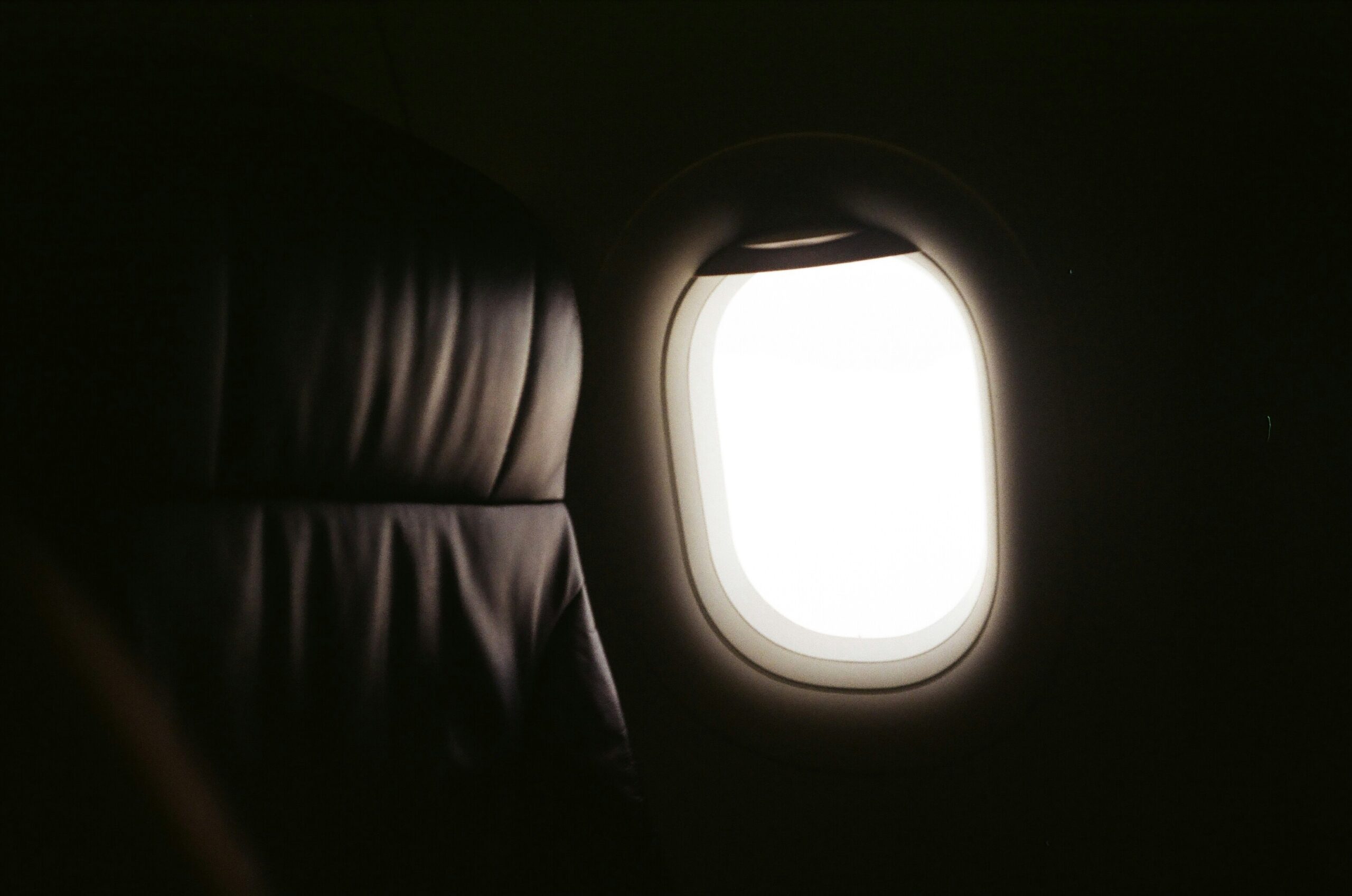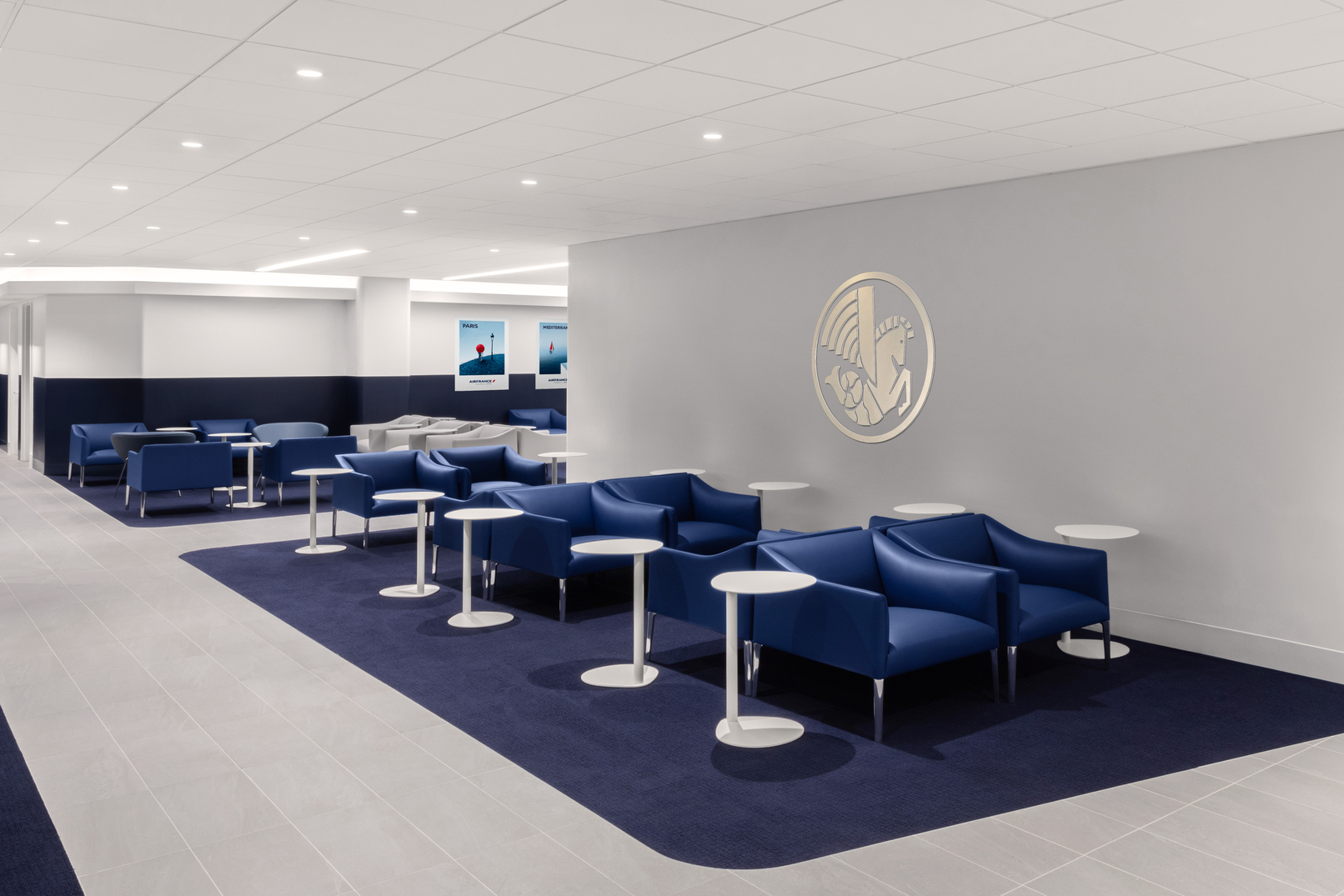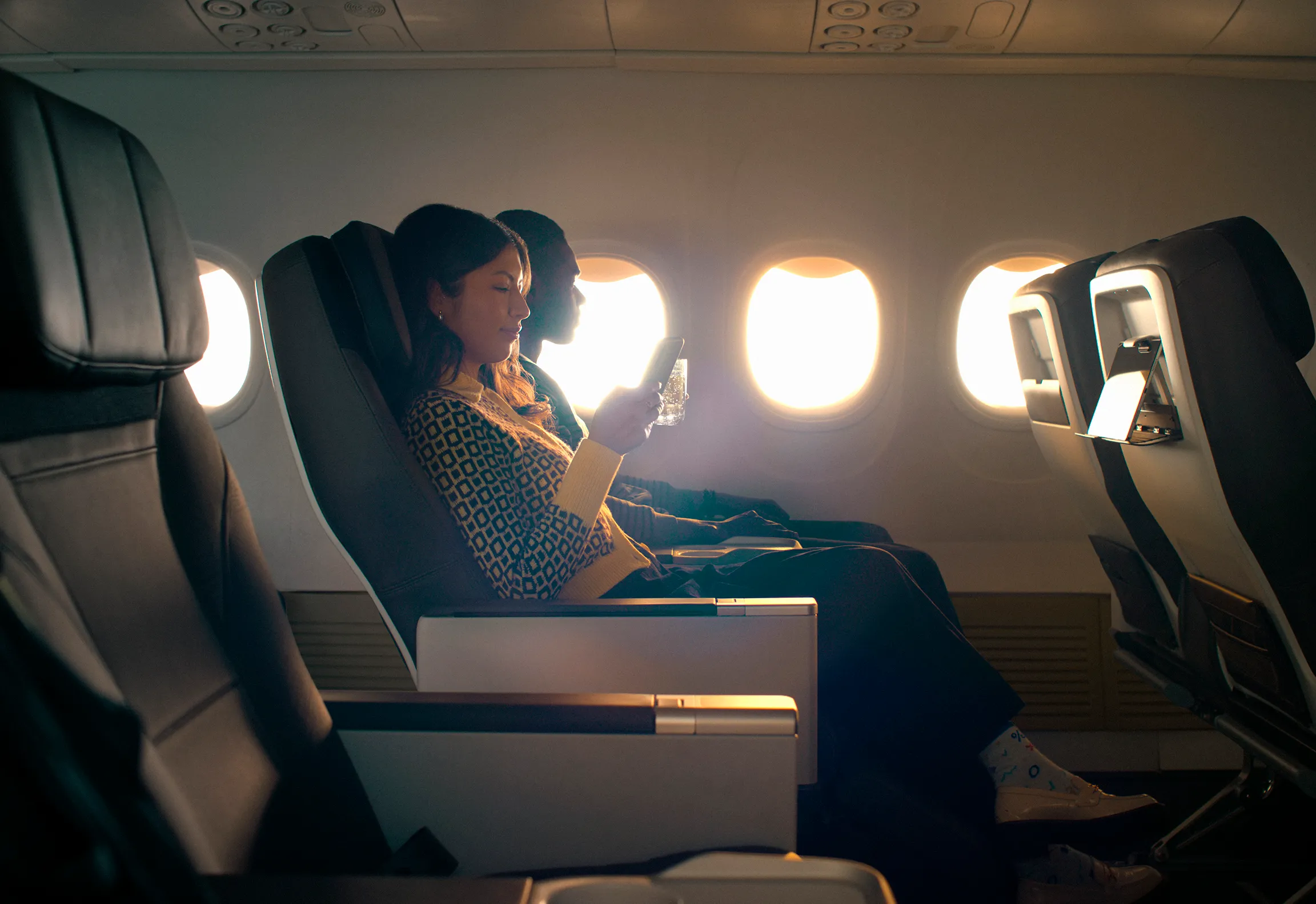Southwest Airlines Axes Free Seats for Plus-Sized Passengers
A sweeping overhaul shifts the Dallas-based carrier closer to its rivals — and away from the passenger-friendly policies that once defined it
by George Gomez
August 25, 2025
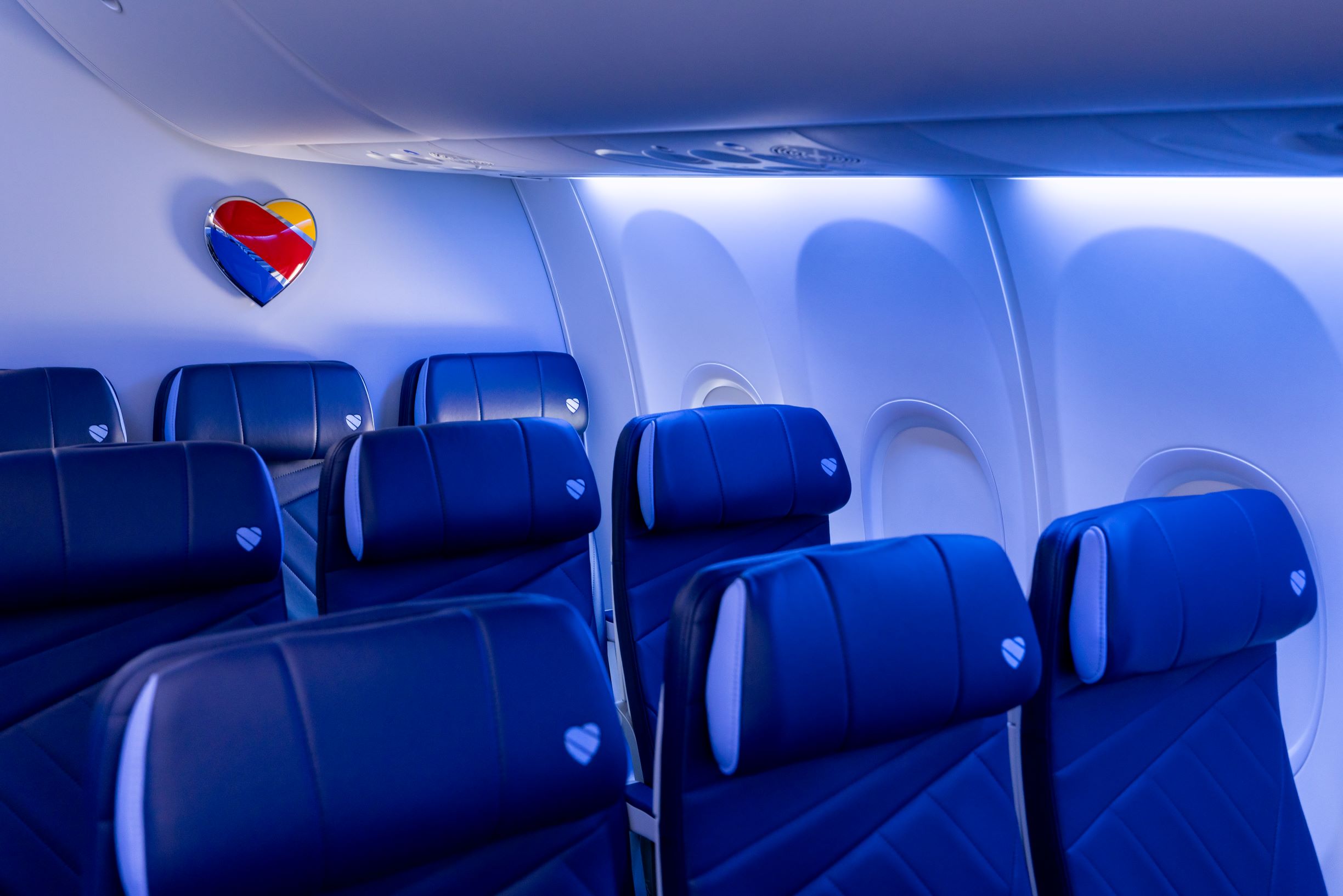
Photo: Southwest Airlines New Cabin Interior. Courtesy of Stephen Keller / Southwest Airlines
For decades, Southwest Airlines prided itself on being the oddball of U.S. aviation. It didn’t charge for checked bags, didn’t assign seats, and didn’t nickel-and-dime passengers who needed extra space to fly comfortably. Instead, the Dallas-based airline built its identity around simplicity, generosity, and a no-frills but people-first approach.
That era is about to end.
Beginning January 27, 2026, Southwest will eliminate its long-standing “Customer of Size” policy, which had allowed plus-sized travelers to secure an additional seat without paying for it upfront.
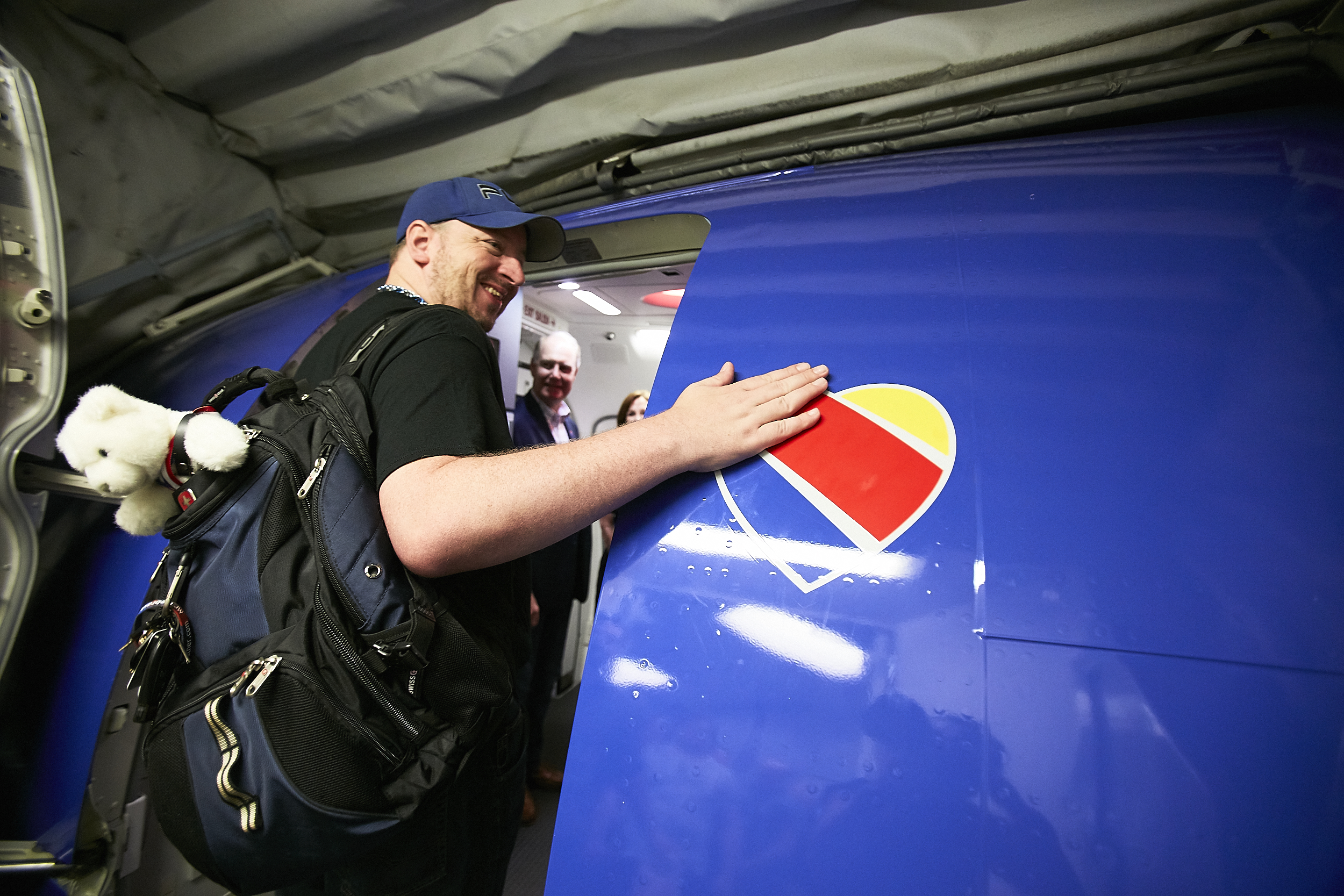
Photo: Courtesy of Southwest Airlines
Under the outgoing program, passengers could either book a second seat and receive a refund after travel—even on oversold flights—or request a complimentary adjacent seat from a gate agent if space allowed.
In a notice posted on its website, the airline outlined the new rules. Passengers unable to fit within the boundaries of a single seat with the armrests lowered will be required to purchase a second seat in advance. Refunds will be available only if the flight departs with at least one open seat, the additional seat is booked in the same fare class, and the refund request is submitted within ninety days of travel. If no seats are available, travelers may be rebooked on a later flight.
“Customers who don’t have the seat space they need will be required to purchase an additional seat and pay any applicable fees,” the airline stated.
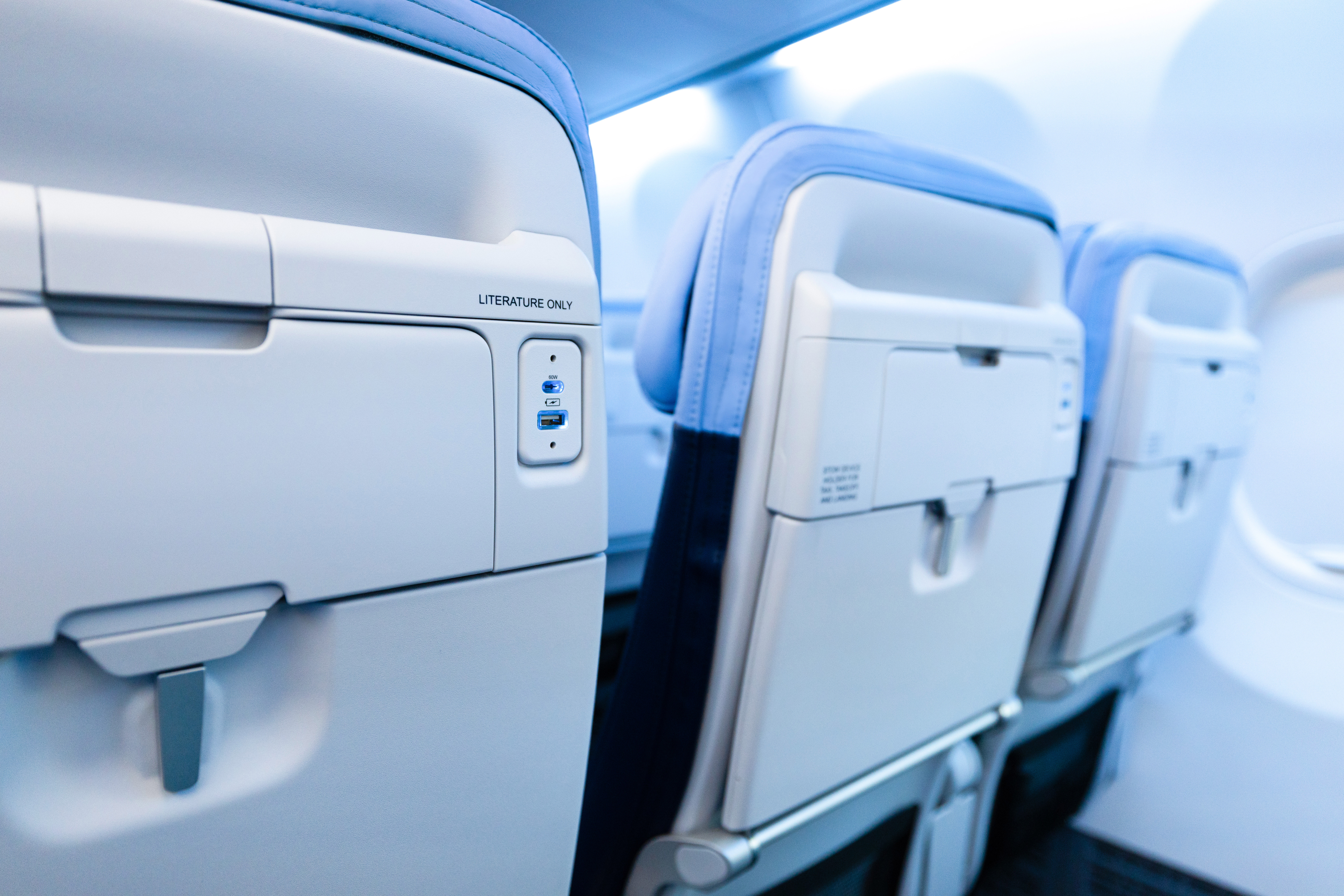
Photo: Southwest Airlines New Cabin Interior. Courtesy of Stephen Keller / Southwest Airlines
The shift represents a seismic cultural change for a carrier that had once been praised for inclusivity. Newsweek described it as “a significant change to a popular policy that allowed larger travelers to book two seats for the price of one.” Advocates warn that the change could make air travel prohibitively expensive for many, while longtime loyalists say it undermines Southwest’s reputation as a customer-friendly airline.
A triple hit: seating, bags, and size policy
The overhaul goes far beyond the “Customer of Size” changes. On the very same day, Southwest will also abandon its open-seating model for the first time in its history, introducing assigned seats at the time of booking. Earlier this year, it ended its “Bags Fly Free” policy, now charging thirty-five dollars for the first checked bag and forty-five for the second.
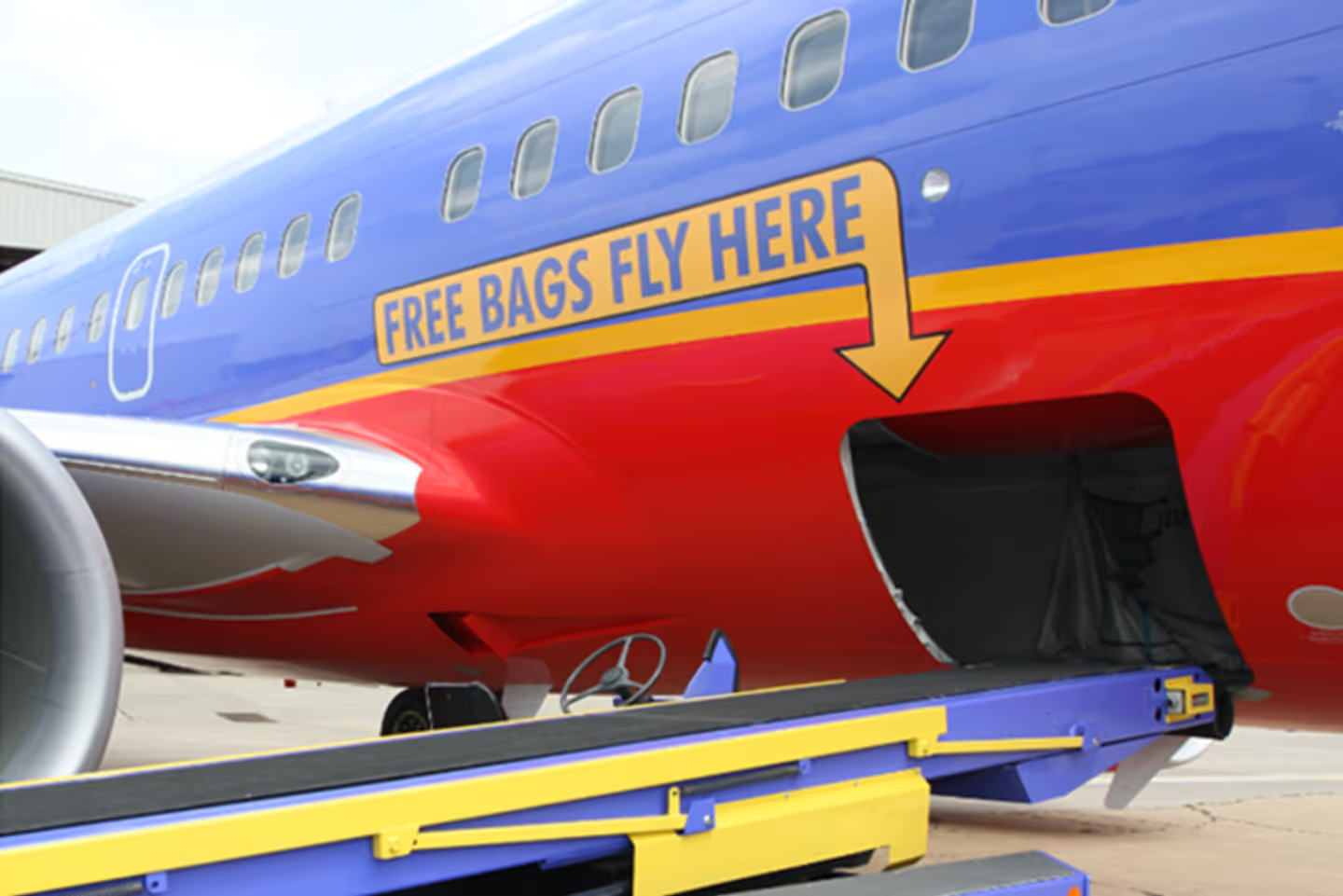
Photo: Courtesy of Southwest Airlines
Together, these moves strip away three of the brand’s most recognizable differentiators. Open seating, free baggage, and complimentary accommodation for larger passengers had long been Southwest’s calling cards, setting it apart from competitors in a crowded marketplace. Their removal suggests a conscious decision to move in line with industry norms — even if it means erasing the quirks that made Southwest distinctive.
How other airlines handle passengers needing extra space
Southwest’s new stance puts it squarely in the mainstream of U.S. airline policies, where rules are stricter and refunds harder to obtain.
Alaska Airlines, for example, requires passengers who cannot fit comfortably within one seat to purchase a second in advance, but it will sometimes refund the cost if the flight departs with empty seats. American Airlines mandates an extra seat for travelers who need a seatbelt extender or extend more than an inch beyond the armrest. If two adjacent seats are not available, customers may be rebooked or required to upgrade to a higher fare class at additional cost.

Photo: Courtesy of Alaska Airlines
Delta takes a slightly different approach, not mandating the purchase of an extra seat but strongly recommending it. If a passenger’s size infringes on another traveler’s space and no alternatives exist, rebooking may be required, and unlike Alaska, Delta offers no refund.
United also requires a second seat in advance, and if none are available, the passenger must rebook on a later flight. One small concession is that passengers who buy two seats on United receive double the baggage allowance.

Photo: Courtesy of United Airlines
Among low-cost carriers, rules are generally the strictest. Frontier, Spirit, and Allegiant all require an additional seat purchase in advance, with no guarantee of refund. Spirit offers a modest alternative in its wider “Big Front Seat.”
Hawaiian Airlines encourages advance booking of two seats but makes some effort to accommodate day-of travel by offering adjacent seating or an upgrade if available.
Against this backdrop, Southwest’s outgoing policy stood apart. It guaranteed larger passengers’ dignity and certainty of travel and reflected an egalitarian ethos. Its removal underscores how far the company is willing to go in rewriting its identity
Why Southwest is changing course
Southwest’s decision is not occurring in a vacuum. As previously reported, the airline is facing a combination of financial pressures, operational realities, and competitive dynamics.
This spring, the airline reported a decrease in profits and revenue due to economic uncertainty and reduced demand for domestic travel. The airline, the largest domestic carrier in the U.S., reported a net income of $213 million for the second quarter of this year, marking a 42 percent decline from the spring of 2024.
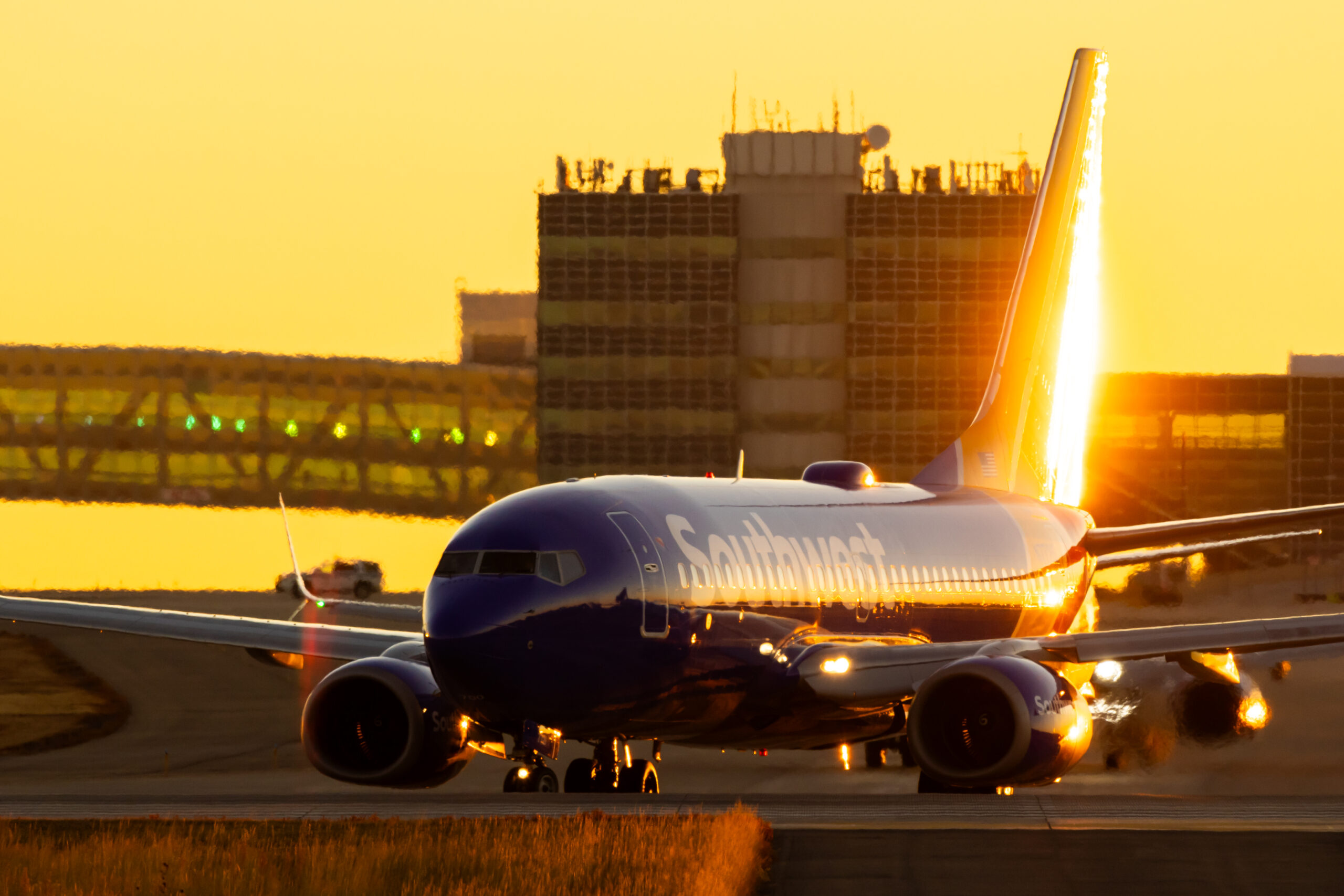
Photo: Courtesy of Denver International Airport
Ancillary fees for baggage and seating have become a reliable income stream for airlines worldwide, and by eliminating free checked bags and adopting stricter size policies, Southwest opens new revenue channels that it had previously left untapped.
Operational efficiency is another factor. Assigned seating is expected to reduce boarding chaos, a hallmark of Southwest’s “cattle call“ process, and could improve turnaround times and on-time performance by cutting down on disputes at the gate or in the cabin. At the same time, aligning with competitors on key policies allows Southwest to standardize its operations and reduce the exceptions that once set it apart.
But these gains come at a cultural cost. Southwest built its reputation on being the airline that “did things differently.“ For loyalists, this latest pivot feels like a betrayal of the brand’s original spirit.
The loyalty test
For many passengers, particularly those who are plus-sized, the end of the “Customer of Size“ policy represents more than a fee increase. It signals that the airline is no longer prioritizing inclusivity. “Advocates warn the changes could make air travel prohibitively expensive for many,“ reported Newsweek, adding that loyal customers have expressed frustration that Southwest is abandoning the values that once earned it praise.
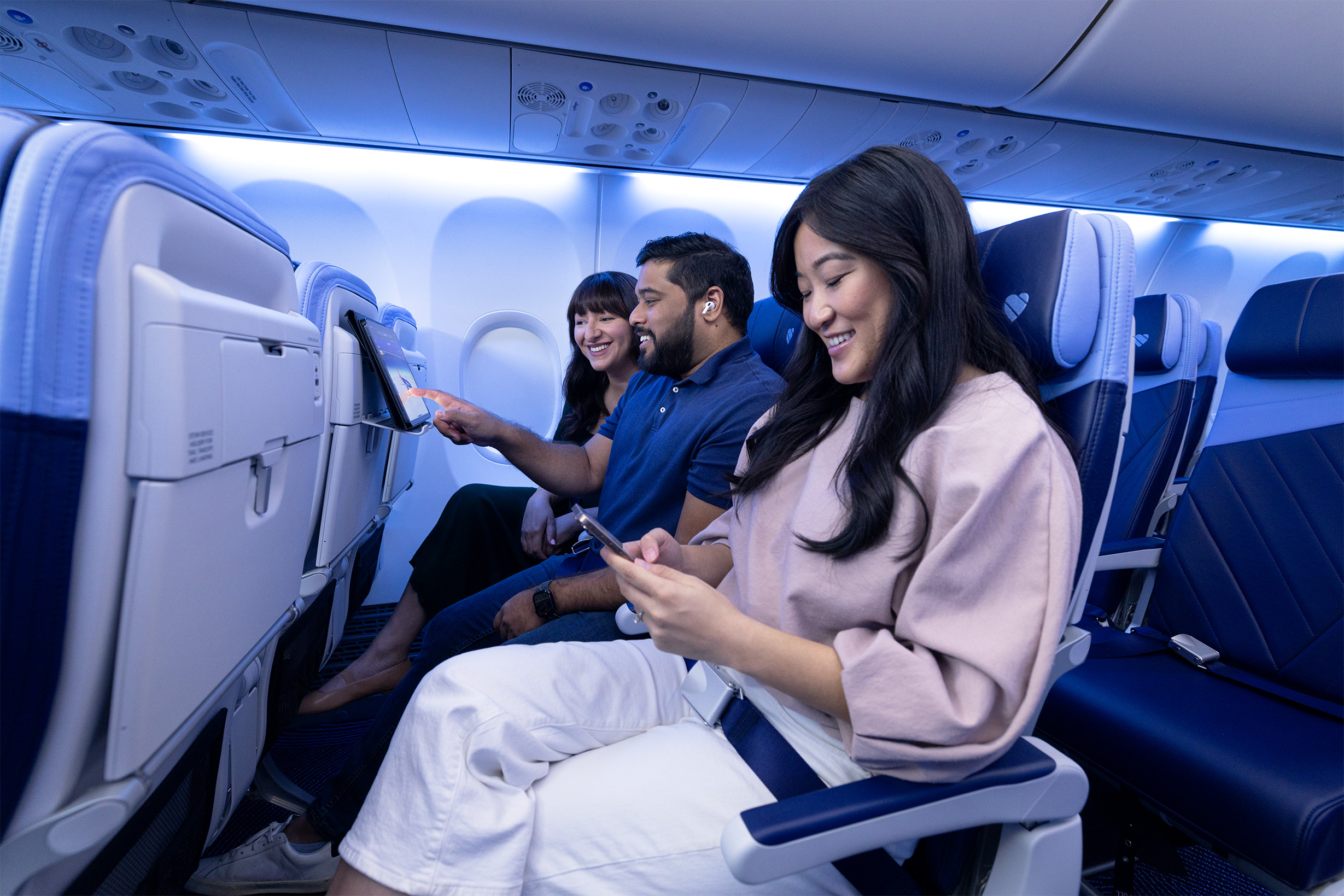
Photo: Courtesy of Stephen Keller / Southwest Airlines
Some may shift their loyalty to Alaska Airlines, which continues to refund the cost of an extra seat in certain circumstances, or even to Delta, which maintains some degree of flexibility without outright mandating a second purchase.
The real question is whether Southwest’s broader customer base — accustomed to free bags and flexible seating — will tolerate the new regime. Frequent fliers may shrug off the changes as industry standard, but occasional travelers may notice the loss of perks that once justified choosing Southwest over legacy rivals.
A turning point in U.S. aviation culture
Airline policies for larger passengers have long sparked debate, balancing inclusivity with the economics of limited cabin space. By ending its outlier policy, Southwest is signaling a broader industry trend toward standardization and monetization. For travelers, it underlines the importance of understanding each airline’s specific rules before booking. A passenger who assumes they can rely on day-of accommodations may find themselves grounded if they fail to purchase two seats in advance.
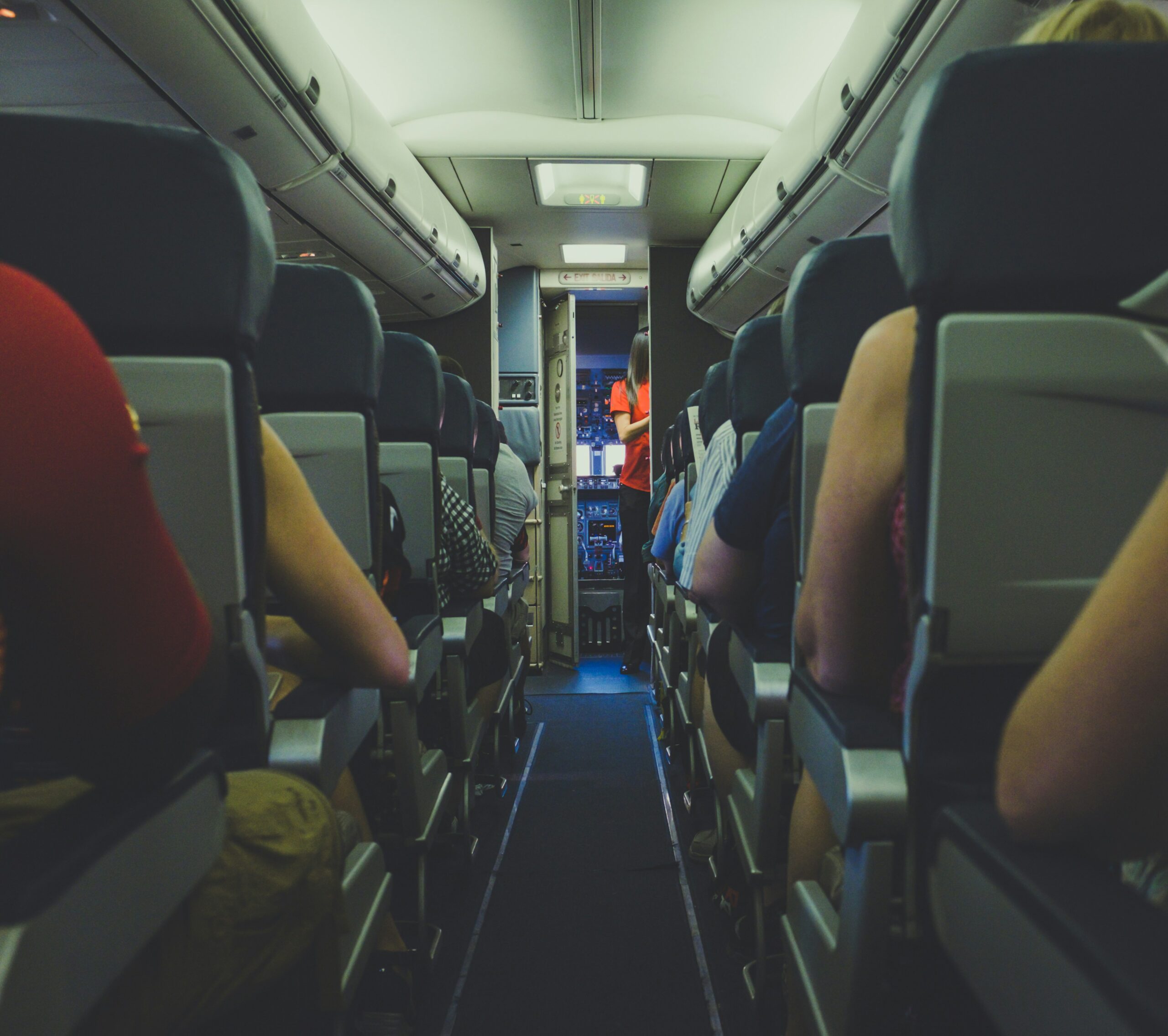
Photo: Courtesy of Kenny Eliason / Unsplash
More broadly, Southwest’s transformation reflects a philosophical shift. Once a scrappy disruptor that marketed itself as the airline “with heart,“ it is now behaving more like the very legacy carriers it once mocked. For the industry, it is a reminder that no airline is immune to the pull of ancillary revenue.
What’s next?
Come January 2026, flying Southwest will feel markedly different. Gone will be the open boarding sprints, the easy reassurance of two free checked bags, and the generous accommodation for customers of size. In their place will be assigned seats, baggage fees, and stricter rules — policies that may improve efficiency and revenue but erode the airline’s identity.
For frequent travelers, the changes are a wake-up call: Southwest is no longer the iconoclast of U.S. skies. It has chosen conformity over distinction. Whether passengers accept that tradeoff will determine whether the airline thrives under its new model — or whether it loses the loyalty of those who once cherished its differences.

